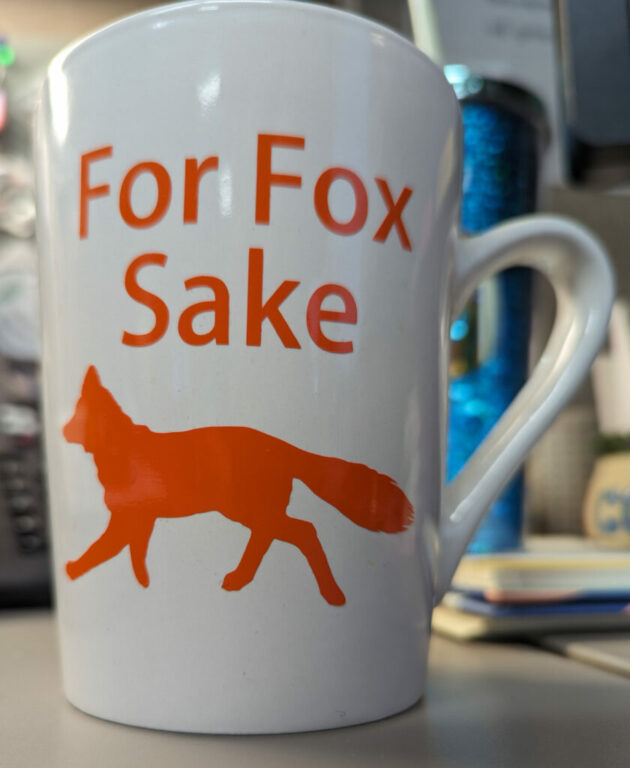People & Places
There’s a mug on my desk at work that reads, “For fox sake.” It’s a not-so-subtle play on words for an oft-uttered phrase that we can’t print.
Those who know me have probably heard me utter the unedited version of that phrase on at least one occasion.
Sunday afternoon comes to mind as a recent occurrence. One of the cats was huddled in the kitchen, looking more suspicious than usual. My oldest kid spotted her and asked what she was up to in an accusatory tone. Her eyes shifted and darted and she tried to subtly move away from him. A mouse was revealed, partially trapped under her front paws.
“For fox sake.”
The mouse was quickly captured under a plastic bowl, determined, sadly, to be dead and dispatched outside. The cat commenced to sulk.
The maddening antics of my cats are just one occasion that will cause profanity, and it isn’t just of the “fox” variety. I have a variety of unprintable words I use regularly for all occasions and various types of people — bad drivers, my credit score, uncooperative public officials, slow websites, war lords, spotty WiFi and microwaves that heat unevenly.
It’s long been argued that profanity is a sign of low intelligence. The premise being a person who can “only” use profanity at times of high emotion isn’t smart enough to come up with better words. I’ve always considered myself a person of moderate intelligence with brief flashes of brilliance — very brief flashes if we’re talking about the pre-caffeine part of the day.
I am also admittedly a frequent swearer and profanity user. The “fox” variant is my favorite but I have been known to cast aspersions on mothers, comment on the scatological nature of a situation and even take a deity’s name in vain. I will note I do know when to not say these things. I’m not a total savage.
Given that, you can probably imagine my glee when studies began to emerge in the last 10 years or so floating the idea that cursing could be a sign of intelligence. My coworker noticed a headline to that effect on my monitor just now and asked if it was meaningful. I told him I was doing some “foxing” research.
Fleeting vindication of my vocabulary aside, the studies are quick to point out that swearing doesn’t make you smarter, but can simply be an indication of a large vocabulary, which is one of many indicators of intelligence. There has also been a positive link indicated between swearing and honesty, according to a series of three studies published in 2017.
Apparently, people who cursed lied less on an interpersonal level and had higher levels of integrity overall, according to a CNN Health article on the subject.
As a reporter, that’s definitely an overall positive. We are a sweary bunch of people, especially if you’re someone who regularly thumbs your nose at Sunshine Laws.
That same CNN article reported swearing could also improve pain tolerance. Think about the last time you stubbed your pinky toe in the dark or stepped on a LEGO. Did you let loose with a healthy “fox”? Did it help?
Apparently studies indicated swearing too much causes those foul utterances to lose their analgesic magic, so use them wisely.
There are also indications a hearty “fox” is a sign of creativity and may help redirect anger away from a more physical response.
Considering all these possible benefits of swearing — and minor downsides — has given me something to contemplate as an adult and possibly provided a little insight to my childhood. Let’s just say my father was a man ahead of his “foxing” time.
Julia M. Dendinger began working at the VCNB in 2006. She covers Valencia County government, Belen Consolidated Schools and the village of Bosque Farms. She is a member of the Society of Professional Journalists Rio Grande chapter’s board of directors.



















